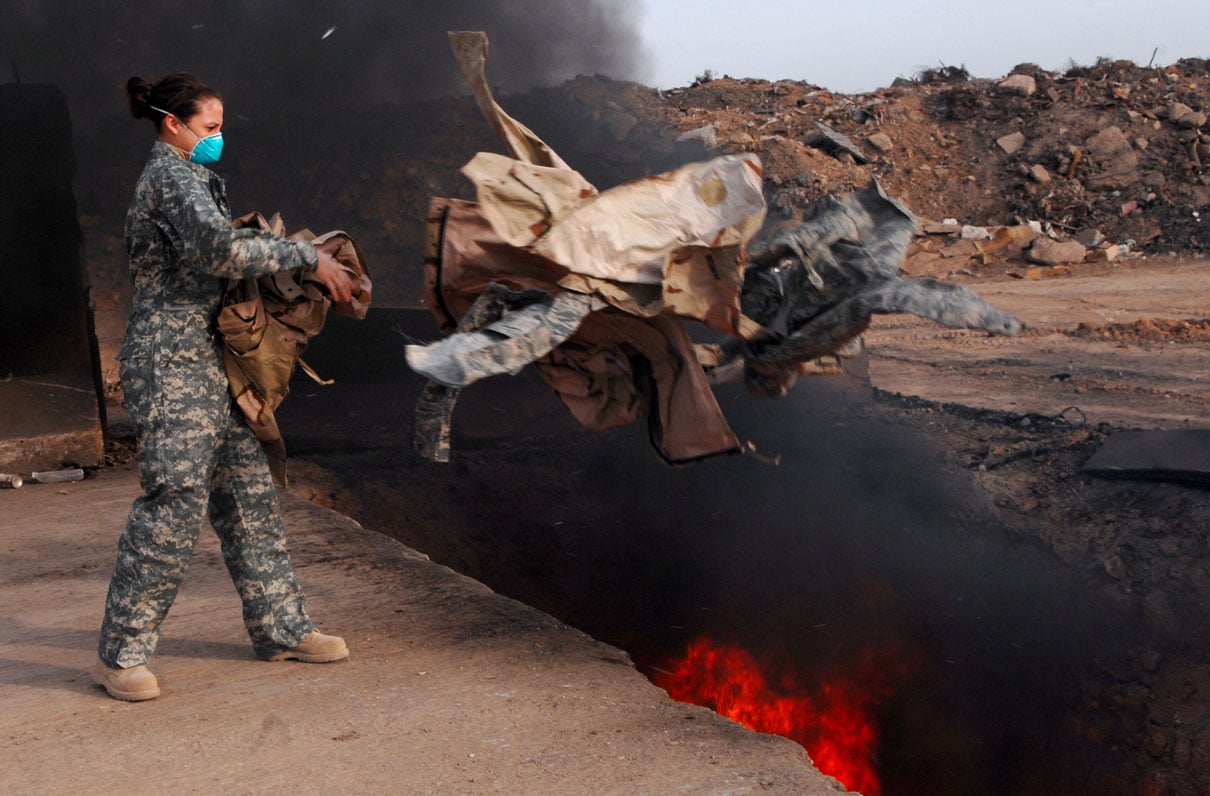Bipartisan legislation put forward by the leaders of the Senate Committee on Veterans’ Affairs (SVAC) would expand VA eligibility to about 1 million Post-9/11 combat veterans, with the goal of improving access to treatment for conditions stemming from toxic exposure.
[RELATED: Share Your Toxic Exposure Story With MOAA]
The Health Care for Burn Pit Veterans Act – supported by MOAA along with The American Legion, Disabled American Veterans, Veterans of Foreign Wars, and other major veterans groups – would open VA health care eligibility for these veterans from five years after discharge to 10, and would also allow for a one-year open enrollment period for any Post-9/11 combat veterans outside that 10-year window.
SVAC Committee Chair Jon Tester (D-Mont.) and Sen. Jerry Moran (R-Kan.), the committee’s ranking member, introduced the legislation, which passed the committee by a unanimous vote Feb. 2.
“MOAA supports the Health Care for Burn Pit Veterans Act and the expanded health care access, medical screenings, research, and training this bill offers,” said MOAA President and CEO Lt. Gen. Dana T. Atkins, USAF (Ret). “Our burn pit-exposed veterans have been waiting far too long to get their health care needs met. We applaud Senators Tester and Moran for working together on this legislation and urge Congress to swiftly pass this bill.”
The bill is the first in a three-phase plan to expand benefits, explained Tester at a Feb. 1 press conference alongside Moran.
“Over the past few months, I’ve worked very closely with my good friend Sen. Jerry Moran … on toxic exposure strategy that will get us one step closer to doing right by toxic-exposed veterans,” Moran said, promising the plan “won’t negatively impact VA’s delivery of health care and benefits to veterans, and can garner enough bipartisan support to get to the president’s desk.”
The second phase would involve the creation of a “new, transparent process” for the VA in determining what illnesses can be presumptively connected to toxic exposure, while the third phase would provide “overdue benefits to thousands of toxic exposure veterans who have been long ignored or forgotten.”
[RELATED: Visit MOAA’s New Legislative Action Center]
The bill also requires several studies related to toxic exposure, including one on mortality rates of veterans who served in Southwest Asia during the Persian Gulf War. It would increase VA reporting requirements and outreach efforts on toxic exposure and require the VA provide a toxic exposure screening for all veterans during medical visits.
“I think the value of this legislation is that we harm no other veteran,” Moran said. “We’re not taking advantage of veterans already in line – 250,000 claims already pending.”
MOAA’s Never Stop Serving Podcast
From Agent Orange to Burn Pits: Toxic Exposure Advocacy
Listen to podcast host Lt. Col. Olivia Nunn, USA (Ret), speak with Cory Titus, MOAA's Director of Government Relations for Veteran Benefits and Guard and Reserve Affairs, about the importance of understanding the work behind the push for policy and legislation surrounding toxic exposures for our military members.

